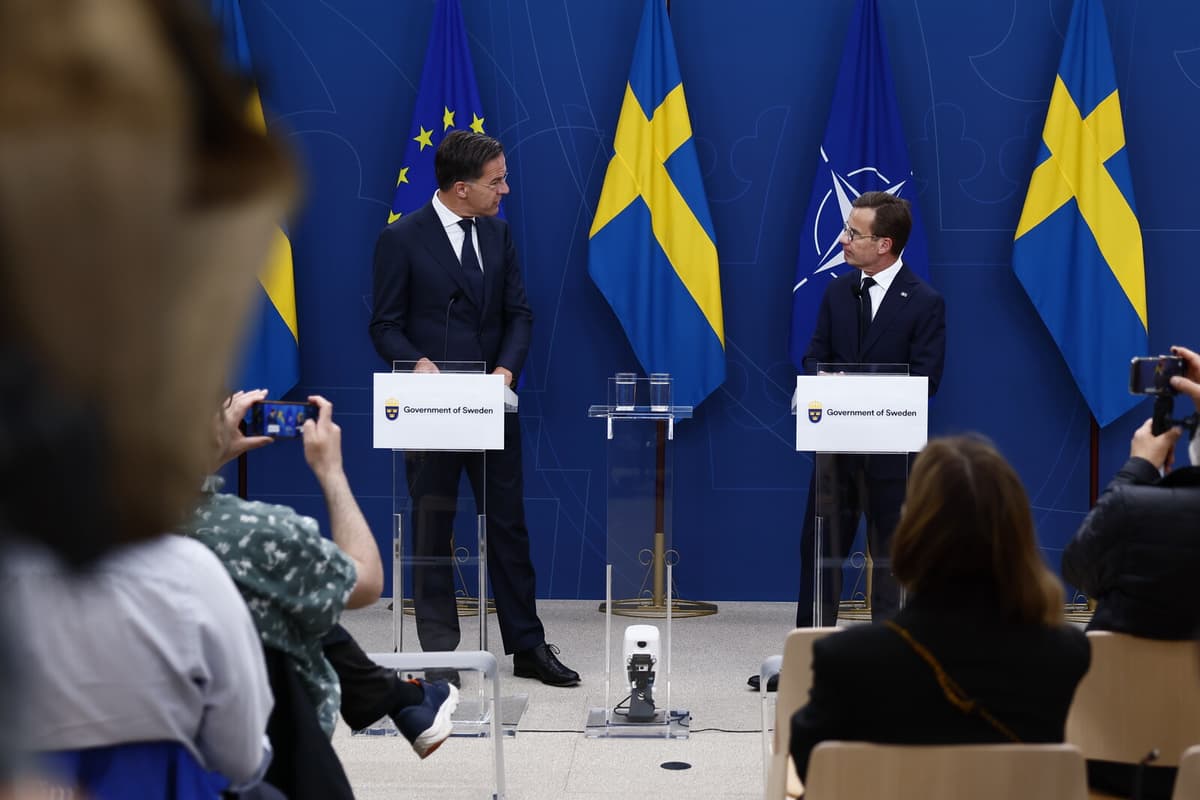The leaders of the 32 member states will only be gathered for two and a half hours, according to the official program. Then it is intended that Secretary-General Mark Rutte will be able to announce the new budget target of allocating at least equivalent to 5 percent of GDP to defense.
The target is divided into 3.5 percent in traditional defense expenditures and 1.5 percent in investments for military benefit, such as roads and bridges.
According to SVT's Rapport 5 percent of GDP corresponds to the cost of running all of Sweden's elementary schools. In an interview in Rapport, Rutte is asked if Sweden needs to spend so much money on defense or if it's about US President Donald Trump telling NATO countries to do so.
If you don't do it, my advice is that you start distributing Russian language books in elementary school. Because in that case, you need to learn Russian - quickly. We must do this for our own security.
No exceptions?
However, Prime Minister Ulf Kristersson (The Moderate Party) is holding on to the caveat until the very end.
- We would like to have a declaration where everyone agrees on 3.5 percent and 1.5 percent. But it's not done yet. Don't see it as a fact until we have made the decision, he said at a press conference with foreign journalists in The Hague yesterday.
Spain believes it has received a promise that it does not need to spend as much - if it still manages to fulfill the requirements that NATO sets for what Spain should be able to contribute to defense. Kristersson - and many with him - however, do not see any exceptions in what has been negotiated.
- When I read the conclusions from tomorrow's declaration, I cannot see anything that creates space for exceptions or for any country to say that "it applies to the others, but not to us", said the Prime Minister.
"Stronger NATO"
Foreign Minister Maria Malmer Stenergard (The Moderate Party) is nonetheless satisfied.
- We get a stronger NATO that can also arm itself and deter Russia to a greater extent. Then I think different countries will choose to implement this with slightly different timelines, but it also creates an opportunity since different countries are in different places, she said at a Swedish press conference yesterday.
The summit in The Hague begins formally at 10:30.






